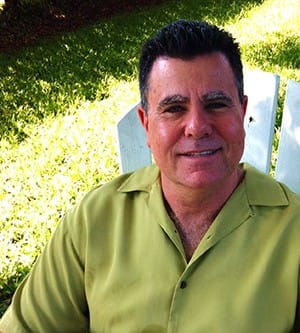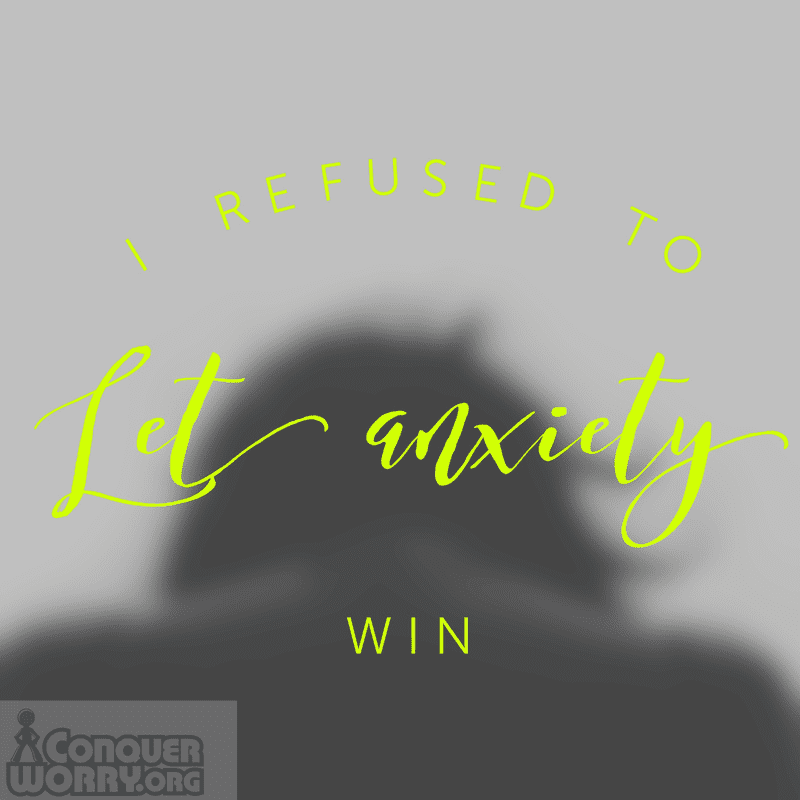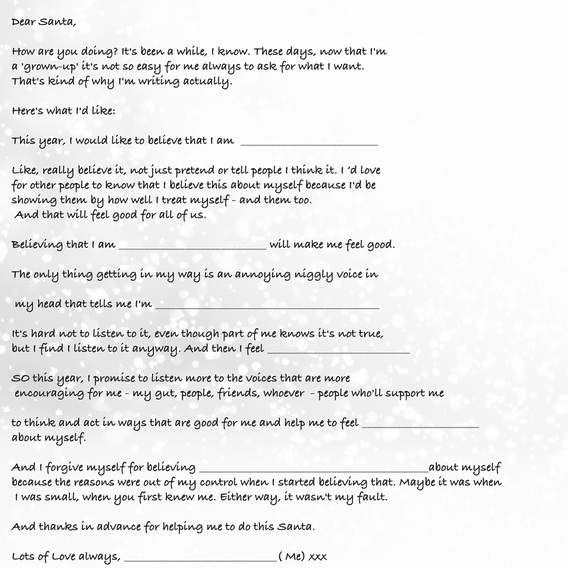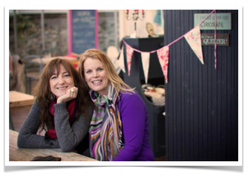|
Guest post by Irving Schattner Edit and post design by Christy Zigweid Photo by PublicDomainPIctures via Pixabay created using @WordSwagApp For many people suffering from anxiety or depression, the Holiday season and New Year can be a difficult time. Unrealistic expectations or commitments, family connection or disconnection, social isolation, financial problems, grief and loss, geographic change, and less sunlight can lead to stress, anxiety, sadness, and depression. Headaches and body aches, over-eating, excessive spending, and insomnia are a few ways in which the inability to cope with the holiday blues can manifest themselves. During such times, it is important to develop a plan of action to head off or derail the effects of the holiday blues. If untreated, they can last way beyond the holiday season and into the New Year. For some people, increased social support can be of great benefit. This may include connecting with old friends or family members. Facebook and other social media, as well as the old-fashioned phone call are tried and true methods. The meetup.com site is a great way to connect with people who share your interests. Counseling and support groups are other ways of self-exploration and learning to connect with the world outside of yourself. For people suffering with season affective disorder (SAD), which is associated with shorter days of sunlight, increased exposure to the outdoors as well as phototherapy 30 minutes daily (25 times as bright as normal lighting), can help increase feelings of well-being. Photo by PublicDomainPictures via Pixabay While for some the holiday season means good, happy times with friends and family, for many people it represents a time of sadness, debilitating self-reflection, loneliness, and anxiety, resulting in fatigue, unrealistic expectations, financial pressures, and commercial expectation to go out and spend money. Too often they are plagued with unfulfilled goals and focus on what’s not right in their lives. The demand to conform to external expectations of what it means to be in the holiday spirit may contradict one’s actual life experience. This leads to internal conflict, somatic ailments, and psychological and emotional distress. Risk factors for stress, anxiety, and depression include, but are not limited to: lack of adequate social support, recent or past trauma, life changes, substance abuse, balancing the demands and expectations of family vs. setting appropriate limits or boundaries, house guests whose presence creates increased tension, and insomnia or isolation. Photo by CC0 Public Domain via Pixabay Tips for managing holiday stress
About the Author - Irving Schattner, LCSW
0 Comments
As a little girl, I was a worrier. I worried about silly things like spiders in my bed, aliens living next door, whether my friends liked me, and what to wear to school. As I grew, so did my worries. Boyfriends and jobs, teachers and classes, filled my thoughts, the normal concerns of any young girl. But there were other worries that consumed me, like a brother who ran away, and another who clung to me when parents fought. I worried about our parents, and whether their worries would tear them apart. I worried myself into teenage anorexia, which became my coping mechanism for dealing with stress. As a teen, I was expected to fit in, eat with my friends, and munch on snacks all day long, which made me eventually give up anorexia, and worry about my weight. Every time I thought about my weight, I exercised, twirled my hair, fidgeted in my chair, and clicked my fingers, my new ways of dealing with anxiety. Photo by mojzagrebinfo via Pixabay I worried so much, I was often sick, sometimes for a month at a time. I missed school, and wondered if I’d get my work done, or even pass my grade. I worried about the flu and colds I often developed, unexplained fevers, and sores that covered the inside of my mouth. By adulthood, I was a flustered, stressed-out, overthinking mess. Only by now, I was getting better at hiding my worries. I hid them behind too much work and fussing constantly in my home. I disguised my worries in sleepless nights. No one, not my children, parents, or husband, knew the constant brooding in my head. I guess you could say, in some strange way, I had control over my worries. Only I didn’t. A few years ago, they all came tumbling out. As my husband and I sat in our car, waiting to turn into a tiny fruit stand, another vehicle rammed into us. I don’t remember the crush of metal against metal, or my brain being flung from one side of my skull to another. What I do remember is standing on the side of the road after the accident, and panicking. Heart-thumping, body-shaking, sweat-dripping, panic. In one brief second, the only control I’d ever had over my worries, was gone, and there was nothing I could do. And to this day, I still have problems controlling my panic. Photo by Alexas_Fotos via Pixabay Recently, a string of events, some unforeseen, some planned, sent me over the proverbial edge. In less than two months, three sets of guests stayed overnight, my husband lost one job and gained another, we went on an out-of-state trip, I was called to jury duty, and I experienced a health scare. To top it off, my children were experiencing their own sets of problems, and though they are adults, I still worried. I worried about everyone those few months: My guests, whether they were happy, comfortable, and having fun; my husband, his old job, his new job, his salary, his benefits. I worried about my children, and their futures. I even found time to worry about a brother who was moving away. It wasn’t unusual for me to worry, but now, my worries were different. I no longer knew how to control them. I no longer knew how to hide behind daily activities. Those two months were filled with a shaking body, constant tears, and a temper that flared for no reason. When it was over, I’d fall in bed, confused, and exhausted beyond belief. Other things had changed in me as well. Worry wasn’t just a part of my life, it consumed me. So much, I’d forget to eat, nap, and exercise. In other words, I’d forget about me. It wasn’t until I received the envelope from the courthouse that I began to figure it out. I knew what it was before I opened it. With shaking hands, I read the neatly printed words on the page, and began to cry. “What is it?” asked my husband. “I have jury duty.” Thoughts raced through my mind. How could I sit in a stuffy courtroom, next to people I didn’t know? What if I didn’t understand what was being said? What if I got tired or needed to eat? Instead of thinking it through, I worried about every scenario. “I can’t do it,” I cried. My husband took me in his arms. “You were called to jury duty a few years ago,” he said. “Your doctor wrote a letter. Call her tomorrow. I’m sure she’ll write another one.” She did. But until I had that final notice in my hand, the one that said I wasn’t required to show up for jury duty, I was a freaked-out, stressed, worried mess. Unfortunately, I had one more thing to worry about. The next week, I received a call from a medical specialist I had recently seen. “We found something on your tests. You need a biopsy,” she said. I hung up the phone, and began to sob. I cried until every muscle ached and my mind reeled with tons of thoughts and emotions. I was convinced life was over, that I’d never celebrate another Christmas, never see another birthday. I was saddened by a family I’d lose, one that I’d no longer be there for, one I wouldn’t see grow and change. By the time I went to the doctor, I was falling apart. Every crease in my face accentuated, every muscle tensed, every word shook as I spoke. A nurse was brought in to hold my hand during my biopsy. As I look back now, I am truly embarrassed by the way I acted. It’s true, it was a stressful time. It would have been stressful for anyone. But I wonder if others would have reacted the way I did. I’ve tried to gain control of my emotions, my worries, my life, but I’m not certain I can. It is a part of who I am, a flaw I am learning to live with. But I know this, I will never quit trying. If anything good has come from my emotional traumas, it is this: My marriage is stronger, for I no longer hide behind flaws. Each flaw is beautifully displayed, for my husband, and all the world, to see; I am stronger. I am learning every day to accept who I am; and most importantly, I am learning to take care of me. About the Author
In this podcast the sister of the murdered Nicole Brown Simpson comes on to discuss her life and how she builds her mental resilience. We also talk about O.J. Simpson, their kids as well as her new book.
Connect with Tanya: www.TanyaBrown.net
From Tanya's Website:
Get real with Tanya: Moving past the adversity in your life.Tanya Brown is no stranger to adversity or trauma. Faced with near overwhelming life challenges, Tanya used obstacles in her path to ultimately improve the quality of her life. She takes her life experience to audiences nationwide as a compelling motivational speaker, and she brings that experience to bear on her coaching practice. Her story makes it clear that you can overcome any adversity with the willingness to ask for help. Tanya’s Story of Loss, Grief, Depression . . . and VictoryThe death of her sister Nicole Brown Simpson, which was sensationalized in the 1994 media frenzy featuring Nicole’s husband O.J. Simpson, unleashed a flood of issues for Tanya. Prior to Nicole’s murder, Tanya had lost several other loved ones, and emotional trauma was setting in. She engaged in dysfunctional eating patterns, and she busied herself with academic work as diversions from the mounting depression. Finally, in 2004, she suffered a breakdown that actually saved her life. She worked for three months to get back on her feet with tools for managing her emotional well-being. Today, she is a celebrity author, a voice against domestic violence, and a motivational speaker and Life Coach who helps others bounce back from adversity. Read Tanya’s Books to Cultivate Coping SkillsTanya has written two books to help readers overcome difficult, traumatic situations. In her revealing and thought-provoking memoir, Finding Peace Amid the Chaos: My Escape from Depression and Suicide, she shares her journey of self-discovery and shows how even the most severely traumatizing life experiences can carry lessons that teach new ways of being. In her second book with Carolyn Inman, Tanya writes about The Seven Characters of Abuse: Domestic Violence, Where It Starts and Where It Can End to help people identify domestic violence. In this break-through book, she includes her own personal stories and diary entries from her late sister, Nicole. These life-changing books are a great way to get started on your journey with Tanya. “Finding Peace Amid the Chaos provides the reader with heart-felt stories and solutions for dealing with major life challenges and daily challenges. When you apply the lessons and strategies woven throughout the chapters, you will experience more peace of mind and calmness when life throws a curve ball." -Dr. John Spencer Ellis, Executive Producer, TheCompass, Founder, Wexford University Guest Post by Two Wise Chicks Post Design by Christy Zigweid Photo by Unsplash via Pixabay made using @WordSwagApp If Christmas is in your life, then you will be very familiar with the idea of writing a letter to the big bearded guy. Can you believe it's writing-to-Santa-time again - already?! Typically, young kids' letters are checklists of 'wants', along with parent-nudged-politeness like "Dear Santa, hope you are well and have had a good year", or "I hope Mrs. Claus is well" and, ideally, a "thanks so much for last year's gift I LOVE it! :)" With age and awareness these letters get more personal, and can sometimes include emotional pleas ("climate stabilisation, a different US president") and other more heart-wrenching requests ("please help my gran/brother/aunt/dad get better") These are the things that, unfortunately, Santa can't control. For if he could, I'm certain he would fix all of these things for us... We often can't remember what age we stopped writing letters to Santa. Or why. Perhaps it felt just too 'childish' at some point? Some adults still write them, and beautifully. They'll start popping up on social media around now; moving masterpieces of human desire and hopes, things of beauty. These adults who write to Santa write because they believe that if you don't believe that you can receive, you don't receive. If we don't believe, we don't receive. It seems almost too simple. Can we make ourselves believe (in) something? 'Belief' is something about which we are passionate. Professional and personal experience keeps teaching us that our beliefs about ourselves dictate our behaviours. Ponder this: if I believe I am worthy, I act in ways that reflect that (without having to think a lot about it). If I believe I am not worthy, then I also act in ways that reflect that (especially if I am not thinking a lot about it). Beliefs don't stop at "I am worthy" (although, truth be told, this might be one of the most encompassing and important for most). There are hundreds, maybe thousands of beliefs that inform our lives on a daily basis. Some of the ones that feature in therapy and have wide-and-long reaching effects on a person's day-to-day life include:
Do any of these resonate with you? Can we change what we believe about ourselves? Yes we can, with awareness and practice. It means choosing to think and act in ways that align with what you would rather believe about yourself. And doing that over and over. And over. Repeating these (more) healthy thoughts and actions until you don't have to think about it so much. Until it becomes a habit. Your new habit. Until you believe 'it' about yourself. And when we believe these things, we receive "more". More respect, better relationships, better health. How? Possibly the most important step, is first identifying which core belief we have about ourselves is the one we want to change. That can be the hardest part. Once we know what it is (and come to terms with the fact), we can work on how to change it. There are plenty of resources out there for us to work with (friends, books, workshops, counsellors, therapists). It is healing and empowering to realise that our beliefs about ourselves can limit our happiness - we cannot fix what we don't acknowledge. So in a very real sense, knowledge is power. Your letter to Santa: So, what about taking a little time this week to write your own letter to Santa? And ask for something that money can't buy, but could be absolutely life-changing? In that letter, write what you would really like to believe about yourself this year (and always). Write about how you would like to know how to overcome the belief that holds you back. That belief that stops you from being fully present, aware, focused, connected, even vulnerable. There is no 'right' way to write your letter. Simply write from the heart, write what you feel (even if it doesn't make 'sense'). Writing is a time-honoured addition to successful therapy, and the beauty of it is that it works in the comfort of your own home, with any old piece of paper or pencil or pen you have. It even works on a keyboard - and it's FREE! Which is always nice... To help you along the way we've put up a template here. It'll only take a few minutes to print out and fill in, and it might be one of the nicest gifts you've ever given yourself - plus it literally won't cost you anything!!! Mind you until the next time, and may Santa (may you) be kind generous to you. About the Authors Sally O’Reilly
Sally wants to help create a world of compassion for ourselves and others. A world where mistakes are allowed, gender roles don’t exist, sex ed in schools is a real thing and everyone dances – lovely! As a psychologist and psychotherapist in Ireland, she’s worked for nearly twenty years in private practice, with adults and trainee adults of all ages. She blogs on her own website, is a feature writer for super duper parenting website Voiceboks.com, does print and radio media work and has been known to Tweet. She’s the one running our Twitter page! When she’s not working, you will find her engrossed in Science Fiction or some dark and Danish TV show, listening to music, watching the sea (while really, really wishing it were warmer), or figuring out how to work Lightroom on her Mac. All while munching on Bombay mix. #multitasker! She’s happiest when dancing and erm…. her cat has his own Facebook page. We won’t link to that, it’s too embarrassing.. Tanya Tinney Tanya looks forward to living in a world where people know their worth, respect boundaries, and always have time for tea and chocolate. A magic bubble that protects her from sticky fingers, hormonal girls and dog hair would be awesome as well. Her education and much of her training is in the areas of psychology and human potential. She worked as a licensed psychologist for over 14 years, with 10 of those years spent building her own successful private practice. In total, she has over 20 years of varied experience working, volunteering for non-profit agencies, and consulting to small business. Most recently she has launched her dream online coaching practice where she gets to work with motivated, amazing women who need help overcoming life’s hurdles. Exciting times! She has lived in Ireland, Ethiopia (okay, just 6 months), Canada, and currently lives in central Texas with her husband, three girls (including fraternal twins), two dogs and three cats. When she’s not finding ‘everyday moments’ to write about here or on her own blog, you can find her being walked by her dogs, unearthing unidentifiable food-objects under the couch cushions or baking her famous banana bread. Tanya runs our Facebook page – and not to be outdone by Sally’s cat, her dog has its own Facebook page too. |
Build Your Action Based Stress Reduction System
Popular PodcastsOlympian Suzy Favor Hamilton - From Fame to Prostitution to Advocacy
Hall of Fame Basketball Star Chamique Holdsclaw on Mental Resilience Diana Nightingale on her husband Earl Nightingale's Principles for Mental Health Success JoAnn Buttaro on Date Rape & PTSD Survival Story: Its Never Too Late Gabe Howard on BiPolar Advocacy Phil Fulmer on Teen Suicide Prison, Bipolar and Mania with Andy Behrman Columbia Univeristy's Dr. Rynn on OCD Archives
March 2018
Categories
All
|















 RSS Feed
RSS Feed





